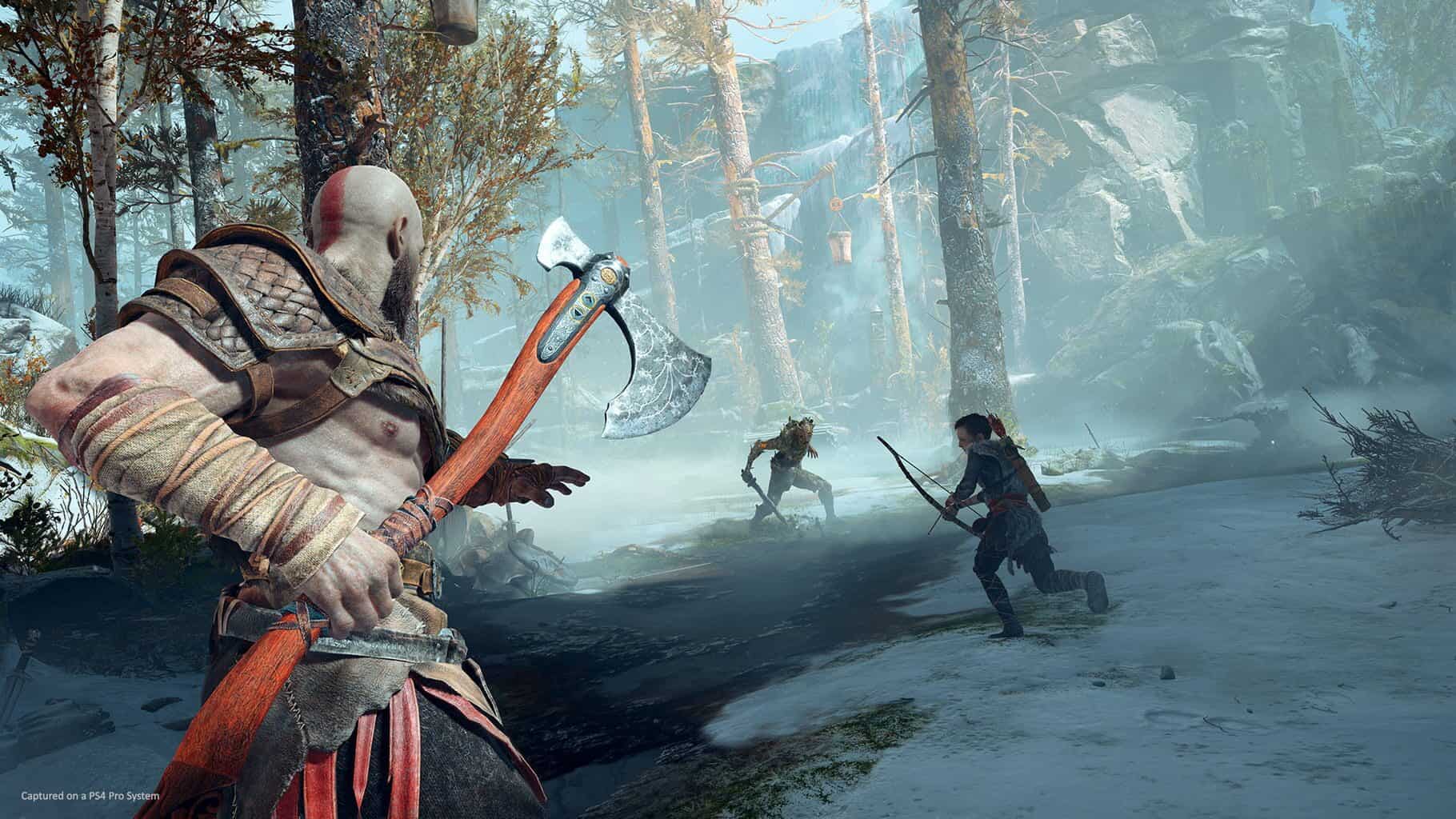The God of War franchise is an action-adventure series created by David Jaffe at Sony’s Santa Monica Studio in 2005. The first game was introduced on the PlayStation 2. It has since grown to encompass ten titles, with six in the mainline, spreading across multiple platforms. The God of War series delves into ancient mythologies, following the character Kratos. The protagonist is a Spartan warrior who later becomes the Greek God of War. Events begin as Ares, the original God of War, deceives Kratos into killing his own family, starting a timeline of battles against various mythological beings.
Santa Monica Studio is the creator of all the main entries, while some of the side games were made by Ready at Dawn and others. As a Sony-exclusive franchise, except for one mobile title, a majority of titles have only seen the light of day on PlayStation consoles. While the franchise initially explored Greek mythology, including the first three mainline titles, later it expanded to other mythologies. Norse mythology was introduced to the mainline of the franchise starting with the 2018 title, named God of War. It also introduced Kratos’ son Atreus as a secondary character. The Norse storyline concluded with the release of God of War Ragnarök.
God of War (2005)
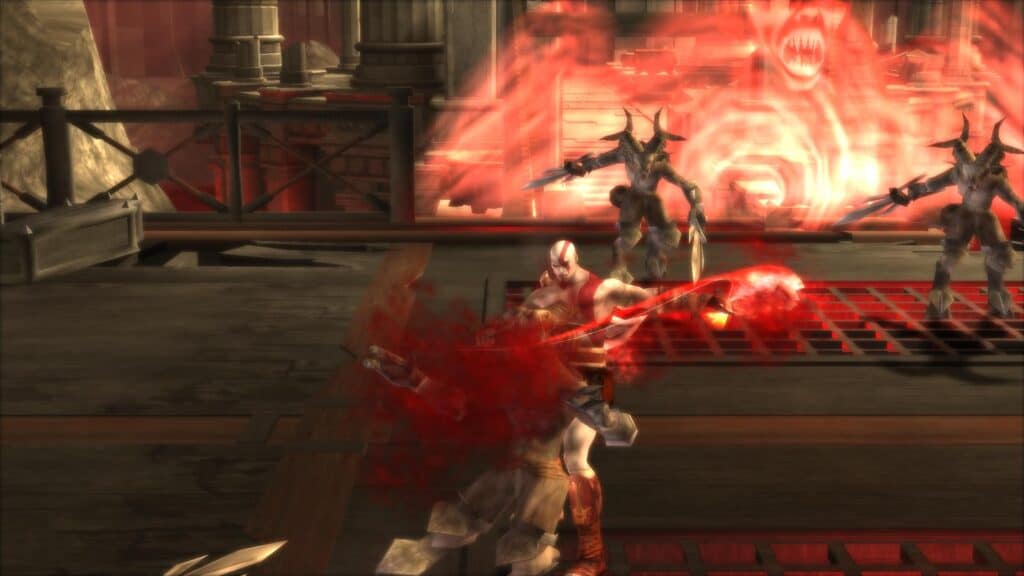
The original God of War debuted in 2005 and revolutionized the action-adventure genre. It introduced cinematic storytelling and a strong but flawed protagonist, Kratos. The game was released only for the PlayStation 2. This game introduced the Blades of Chaos, a unique weapon that became iconic for the series. The story of Kratos’ vengeance against Ares, his former mentor, takes him on a journey for Pandora’s Box. Accessing Pandora’s Box is the only way to defeat the gods. Ares, the God of War, devastates Athens, and Athena tasks Kratos with handling the rogue god.
God of War also broke ground with its use of quick-time events. These are integrated into both combat and puzzles, a technique that many later games adopted. The game’s commitment to Greek mythology was front and center, which is expanded in other titles. The adventure of Kratos in the alternate version of ancient Greece includes Olympian gods and familiar mythological creatures as he ascends to the throne of God of War himself.
God of War II (2007)
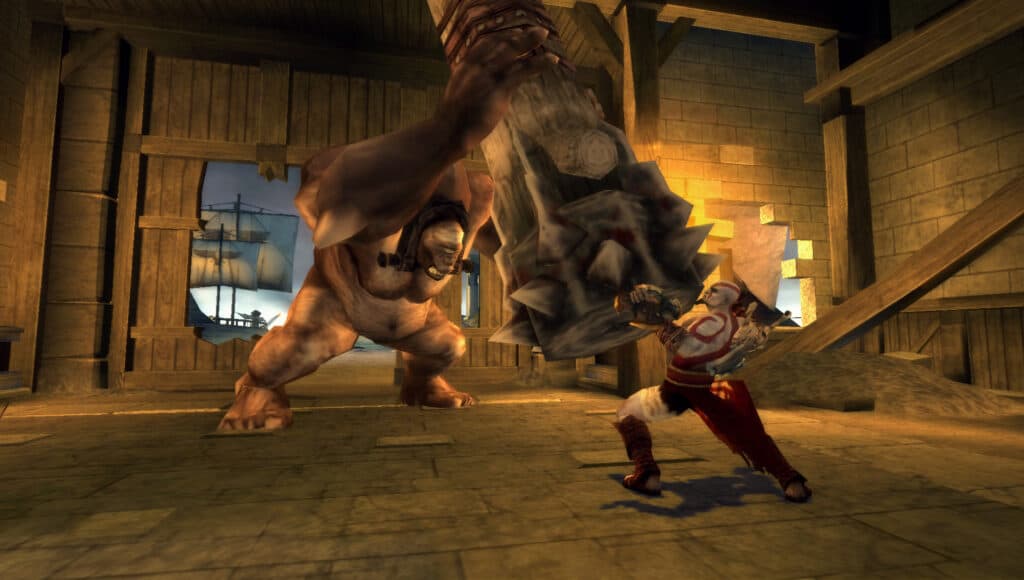
God of War II was also released for PlayStation 2. Kratos continues his journey in the ancient Greece-themed world, now as the new God of War after defeating Ares. God of War II pushes the boundaries further with its narrative, introducing new characters and twists and turns in the vengeful campaign of Kratos. This iteration of the God of War series expands to Rhodes, where Kratos is dealing mayhem, and is betrayed by his father, Zeus. New gameplay elements like the Golden Fleece gives players a more strategic combat experience compared to the first installment, although much of the combo-based combat stays intact.
The sequel also significantly expands its scope, with levels and set pieces that were more grandiose than the original. More than just a continuation, God of War II set a new standard for what sequels in the action-adventure genre could be.
God of War: Betrayal (2007)
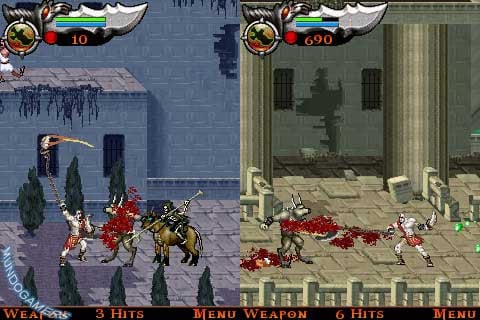
God of War: Betrayal was unique as it shifted the series into a 2D side-scrolling format for mobile platforms. The game was released for mobile phones that support Java and was the first one to not be released on Sony’s PlayStation devices. This game manages to encapsulate the combat feel of its predecessors despite the limitations of mobile gaming during that time. While much simpler than the mainline games, it features similar gameplay elements: combat, puzzle-solving, and acrobatics.
In terms of the story, Betrayal offers a subplot that strays from the central vengeance theme. As Kratos leads the Spartans into battle, he gets framed for killing Argos, Hera’s pet, which angers the other gods. His task is to find the assassin who framed him.
God of War: Chains of Olympus (2008)
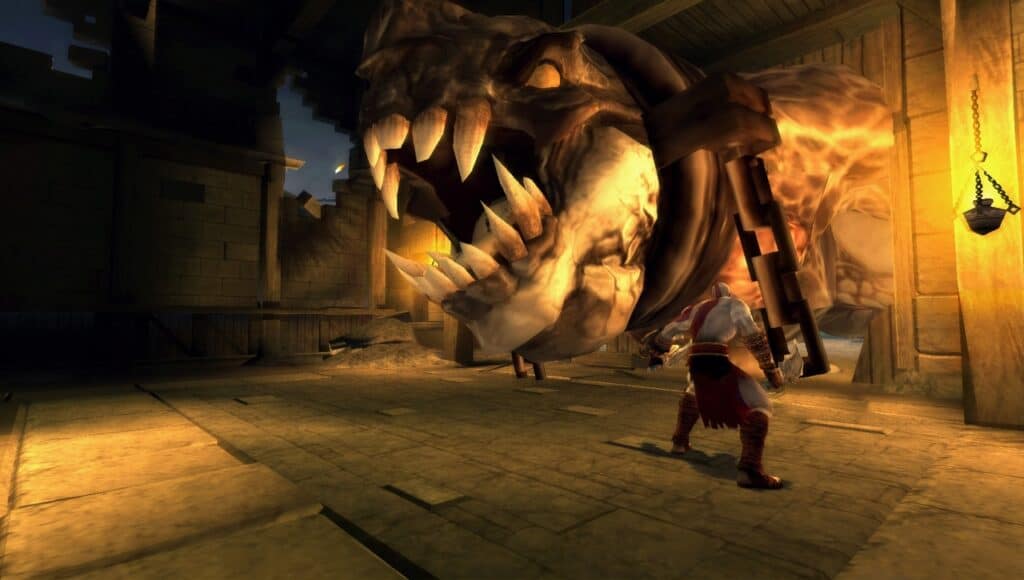
Chains of Olympus was the franchise’s debut on the PSP and the first portable console title. It introduced a new defensive tool in Kratos’ arsenal, the Sun Shield. The game delivered much more impressive graphics than the mobile game before it and complex gameplay while keeping Kratos on a handheld device.
From a narrative standpoint, Chains of Olympus pits Kratos in various locations, including the ancient cities of Attica and Marathon. It delves into his ten years of service under the gods as he was sent to defend the cities from Persian attacks. While defending Attica, he learns that the havoc is the work of the god Morpheus. It takes Kratos on another journey to fight the gods and their servants.
God of War III (2010)
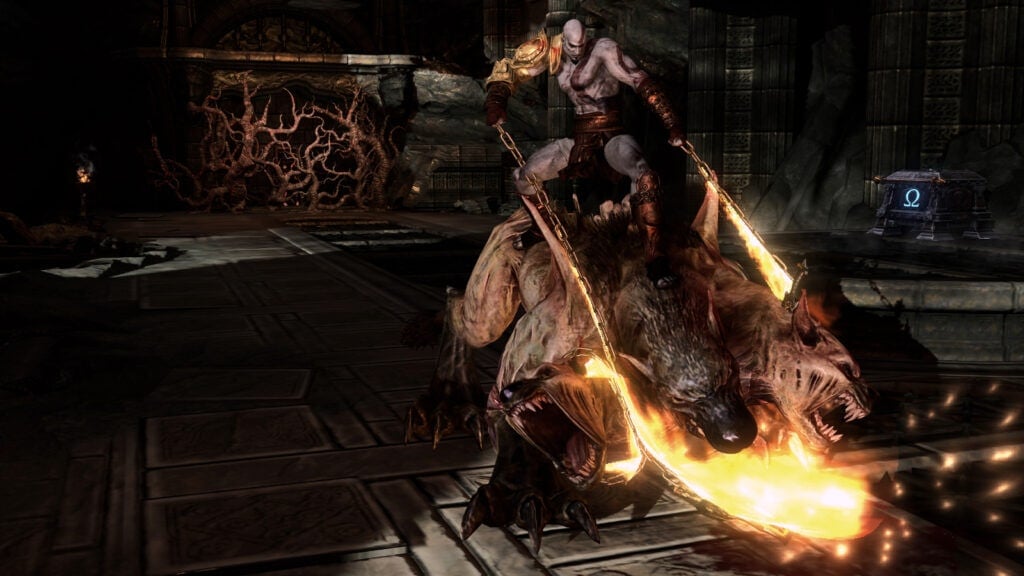
God of War III was noteworthy for its impressive visual quality, achieved through newly improved hardware capabilities, thanks to the PlayStation 3 console. It is also considered one of the best God of War games to date. The game introduced new combat elements, like the Nemean Cestus, a pair of lion-headed gauntlets that added to Kratos’ fighting prowess.
The story follows Kratos, a former god, who had been demoted after betraying his father, Zeus. Looking for revenge on both the Olympian gods and the Titans that betrayed him, he is helped along by the spirit of Athena. Battles take place on the Olympus and in the Underworld. The game provides narrative closure to Kratos’ quest against the gods and it concluded the original trilogy.
God of War: Ghost of Sparta (2010)
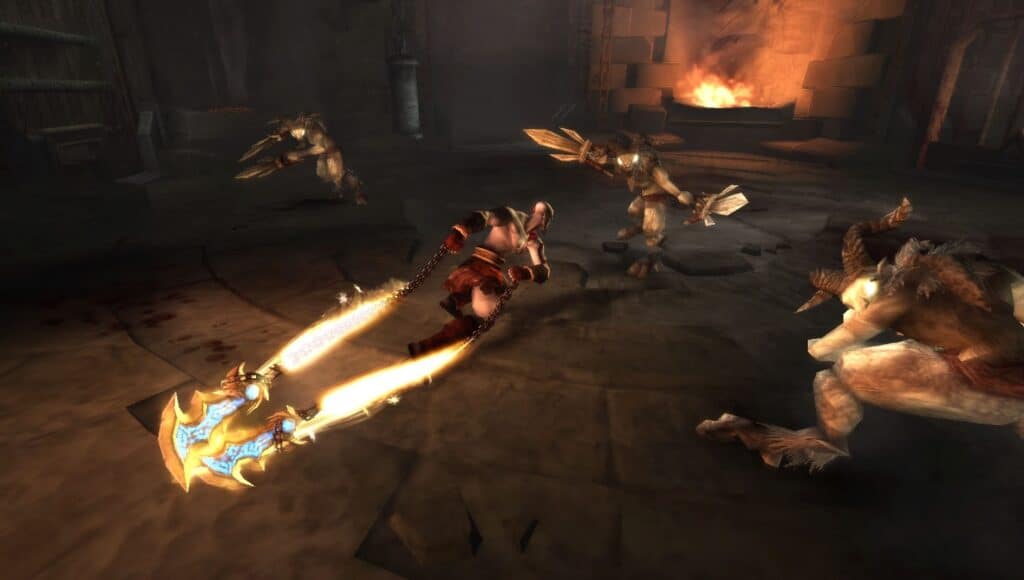
This 2010 game was the second God of War title released for the PlayStation Portable. Ghost of Sparta added to the series’ combat mechanics by introducing Thera’s Bane. It is an ability that enhances Kratos’ weapons for a short duration. This addition provides combat strategy options for players beyond the first PSP game.
On the story side, the game expands on Kratos’ family history, particularly concerning his deceased brother, Deimos. Kratos learns that the God of Death, Thanatos, had taken hostage of Deimos. His aim is to defeat Thanatos and free his brother. Unlike many of the vengeance and anger-filled episodes earlier, this marked a more insightful theme that would become popular in future titles.
God of War: Ascension (2013)
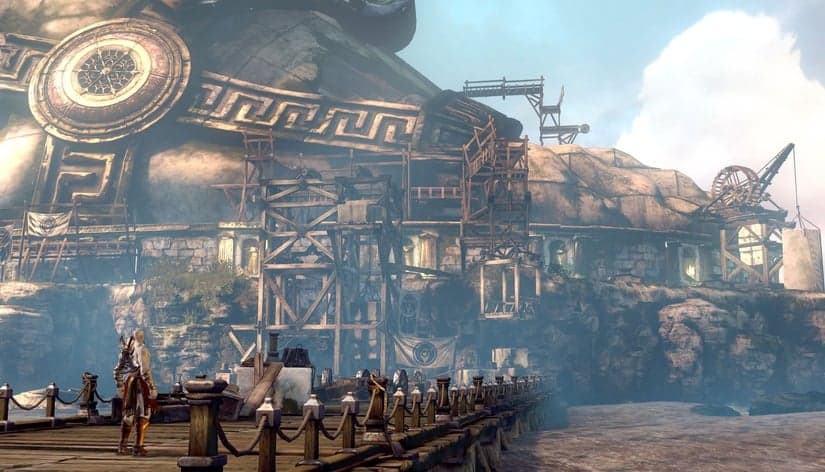
God of War: Ascension was the last title in the series to be released for the PlayStation 3. Ascension was a turning point for the series also with the introduction of multiplayer, a feature not seen in earlier God of War games. Players could engage in both competitive and cooperative gameplay. The single-player campaign also had new gameplay mechanics like the ability to manipulate time to solve puzzles.
Narratively, Ascension served as a prequel to the series and explored Kratos’ human side. This is around six months before Ares tricked Kratos into killing his wife and daughter, and before he became the Ghost of Sparta and a god among the Olympians. Kratos learns about a plan to overthrow the Olympian gods by the God of War. The backstory gave Kratos more depth and explained actions he took in titles that are chronologically later in the series.
God of War: A Call from the Wilds (2018)
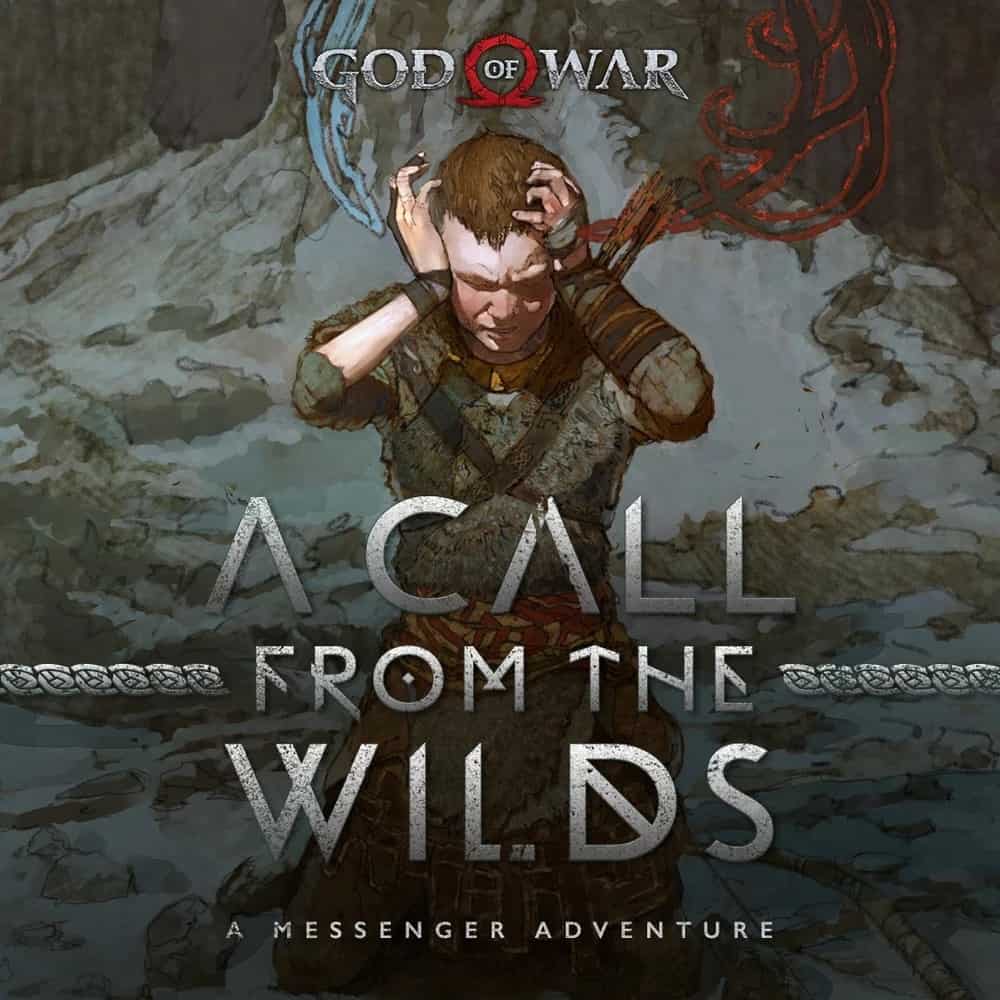
A Call from the Wilds is a unique entry as a text-based game played through Facebook Messenger. It primarily focuses on Atreus, allowing players to see the God of War world from a new perspective. Atreus is the son of Kratos and a character who becomes increasingly important in upcoming titles.
The game is short but packed with narrative elements that set the stage for the next mainline installment. It provides fans with Atreus’ first adventure in the Norse wilderness. It also acts as a bridge from ancient Greece to the new God of War universe.
God of War (2018)
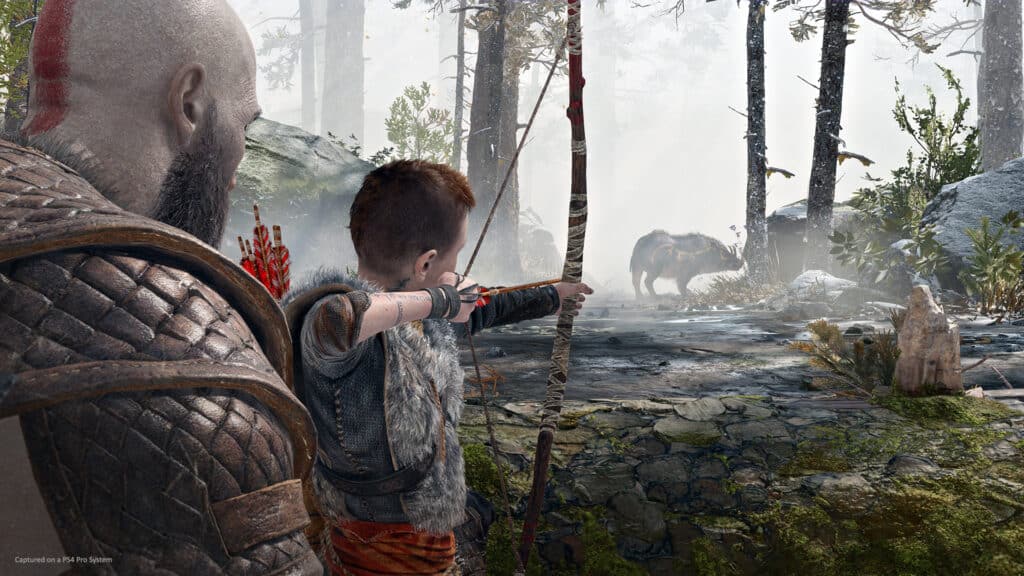
The 2018 game, simply titled God of War once again, is the first PlayStation 4 title in the series. The game marks a pivotal shift for the series by introducing a new mythology and a second protagonist, Atreus, in the main storyline. It also renews the camera system, replacing the fixed cinematic camera with an over-the-shoulder free camera.
New gameplay mechanics like the Leviathan Axe and the absence of jumping represents a significant departure from the earlier titles. The game also adds more freely explorable environments, introducing a semi-open world for the first time in the series. In terms of the story, Kratos and his son Atreus embark on a journey in Midgard to spread the ashes of Kratos’ second wife at the highest peak of the land. However, the adventures become more dangerous as they find themselves having to fight against the Norse gods. The game was also one of the most successful titles in the series.
God of War Ragnarök (2022)
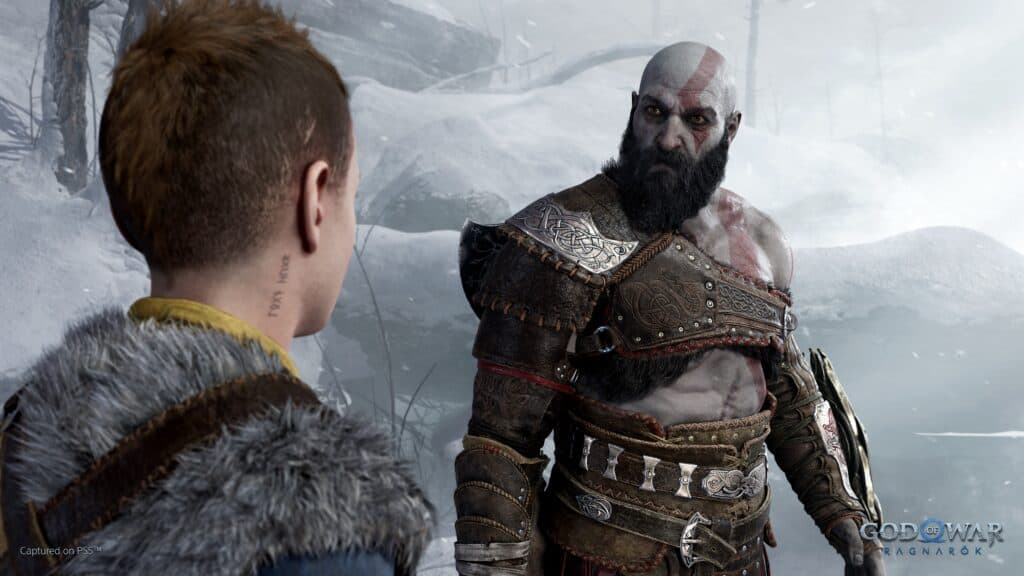
As the first title on the latest PlayStation console, the PS5, God of War Ragnarök makes significant additions to the series, such as new modes of transportation that include a sleigh and two pet wolves. It also expanded the world by including all nine realms of Norse mythology, compared to only six in the 2018 installment.
The game also introduces a host of new enemy types like einherjar, wyverns, and nokkens, offering fresh challenges to players. Concluding the Norse era of the series, Ragnarök set the stage for future adventures in different realms, bringing closure to the storyline initiated in the 2018 game and the preceding text game A Call from the Wilds.
Chronological Order
Players usually experience much of the God of War series in chronological order. The episodes within each sub-series, like the Greek trilogy and the Norse series, connect to each other chronologically. While the stories between the sub-series don’t directly connect to each other, they still follow the same chronological rule.
However, there are a few games that do not follow the chronological order. These include the two titles released for the PlayStation Portable, namely God of War: Chains of Olympus and God of War: Ghost of Sparta. The only main storyline game in the God of War series not released in chronological order is God of War: Ascension. This game came out between the two sub-series and explores Kratos’ history. If you intend to do it in a true chronological order, here’s the order in which you should play the games.
- God of War: Ascension
- God of War: Ghost of Sparta
- God of War: Chains of Olympus
- God of War (2005)
- God of War: Betrayal
- God of War II
- God of War III
- God of War: A Call from the Wilds
- God of War (2018)
- God of War Ragnarök
